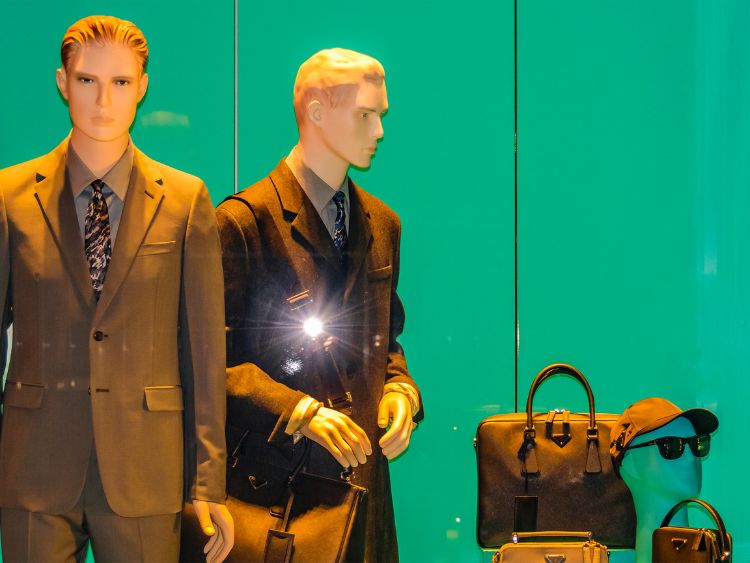Fashion Week is the epitome of creativity, glamour, and innovation in the fashion industry. Whether you’re a fashionista, a designer, or just someone who loves to stay on top of trends, Fashion Week is where all the magic happens. This iconic event takes place twice a year, showcasing the upcoming season’s collections and giving us a sneak peek into the future of fashion.
But what exactly is Fashion Week, and why is it so important in the fashion world? Let’s dive into everything you need to know about this iconic event, its history, how it impacts the industry, and what to expect in the future.
What is Fashion Week?
Fashion Week is a bi-annual event where top fashion designers from around the world present their latest collections to an audience of industry insiders, including buyers, journalists, and influencers. These shows are held in fashion capitals like New York, Paris, London, and Milan, drawing in the crème de la crème of the fashion world.
The Big Four: New York, Paris, London, and Milan
Fashion Week isn’t limited to just one location. The “Big Four” cities – New York, Paris, London, and Milan – are considered the most influential Fashion Weeks in the world. Each of these cities has its own unique style and flair, making every Fashion Week a distinct experience.
- New York Fashion Week (NYFW): Known for its edgy and commercial appeal, NYFW is the first of the Big Four and is a hub for American designers.
- Paris Fashion Week (PFW): Considered the pinnacle of haute couture, Paris is where elegance and artistry come to life.
- London Fashion Week (LFW): London is all about innovation and pushing boundaries, often showcasing avant-garde collections.
- Milan Fashion Week (MFW): Milan is synonymous with luxury, and its shows often feature high-end brands and impeccable craftsmanship.
The Origins of Fashion Week
Did you know that Fashion Week wasn’t always the global spectacle it is today? The very first Fashion Week took place in New York City in 1943. At the time, fashion was heavily influenced by French designers, but with World War II making it difficult for fashion insiders to travel to Paris, the U.S. decided to host its own version of the event. The goal was to highlight American designers and reduce reliance on French fashion.
What started as a way to promote American fashion quickly grew into a global phenomenon, with cities around the world hosting their own Fashion Weeks. Today, Fashion Week is a celebration of creativity, individuality, and, of course, the latest trends.
How Fashion Week Works
Wondering how Fashion Week operates? It might seem like a whirlwind of runway shows, but there’s much more going on behind the scenes.
The Runway Shows
At the heart of Fashion Week are the runway shows. Designers present their collections for the upcoming season, typically Fall/Winter or Spring/Summer. The models walk down the runway, showcasing the pieces to an audience filled with celebrities, influencers, buyers, and fashion editors.
Runway shows can range from minimalistic presentations to over-the-top productions with elaborate sets, music, and themes. Each designer puts their unique spin on the show, making every presentation a one-of-a-kind experience.
The Schedule
Fashion Week typically runs for about a week, with several shows scheduled each day. It’s a jam-packed schedule, with some attendees racing from one venue to the next to catch all the must-see shows.
Designers are assigned specific time slots, and it’s crucial that everything runs like clockwork. There’s no room for delays, as each show must start and finish on time to avoid conflicts with other designers.
The Impact of Fashion Week
You might be asking yourself, “Why is Fashion Week so important?” Well, Fashion Week plays a crucial role in the fashion industry for several reasons.
Setting Trends
Fashion Week is where trends are born. Designers use this platform to present their vision for the upcoming season, and what you see on the runway often trickles down into mainstream fashion. From the colors and fabrics to the silhouettes and accessories, Fashion Week sets the stage for what’s hot and what’s not.
Boosting Designers’ Careers
For emerging designers, getting a spot at Fashion Week can be a career-defining moment. It puts them in front of industry insiders, potential buyers, and the media, giving them the exposure they need to grow their brand.
Established designers also benefit from the visibility Fashion Week provides, as it allows them to stay relevant in a competitive industry.
Influencing the Global Fashion Economy
Fashion Week isn’t just about glitz and glamour – it’s also a major driver of the global fashion economy. The collections showcased at Fashion Week influence what will be produced and sold in stores around the world. Fashion buyers attend these shows to decide which pieces they’ll stock in their stores, meaning that Fashion Week has a direct impact on retail trends.
What to Expect at a Fashion Week Show
If you ever get the chance to attend Fashion Week, here’s what you can expect.
Glitz, Glam, and Celebrities
Fashion Week is known for attracting A-listers from all over the world. From celebrities to influencers, you’ll see plenty of familiar faces in the front row. The glitz and glam don’t stop there – the street style outside the shows is often just as exciting as what’s happening on the runway!
Cutting-Edge Designs
Prepare to be wowed by the creativity of the designers. From avant-garde pieces that push the boundaries of fashion to wearable art, Fashion Week is where designers let their imaginations run wild.
A Fast-Paced Environment
Fashion Week is fast-paced and intense. Shows start on time, and if you’re attending multiple shows in a day, be prepared to hustle from one venue to the next. It’s all part of the excitement!
FAQs About Fashion Week
What is the purpose of Fashion Week?
Fashion Week allows designers to showcase their upcoming collections and set trends for the following season.
When does Fashion Week take place?
Fashion Week is held twice a year in major fashion capitals – once for the Fall/Winter collections and once for Spring/Summer.
Who can attend Fashion Week?
Fashion Week is primarily an industry event, with designers, buyers, fashion editors, and influencers in attendance. However, some shows are open to the public.
Which city hosts the best Fashion Week?
Each city has its own unique vibe. Paris is known for haute couture, New York for commercial designs, London for avant-garde fashion, and Milan for luxury.
How can new designers get involved in Fashion Week?
Emerging designers often participate in smaller Fashion Weeks or apply to present their collections during established events. Networking and building industry connections are essential.
Conclusion: The Future of Fashion Week
Fashion Week continues to evolve, adapting to changes in technology and the fashion industry. As we move forward, virtual shows, sustainability, and inclusivity are likely to play a larger role in shaping the future of Fashion Week.
With fashion lovers and industry insiders eagerly awaiting each season, Fashion Week remains one of the most anticipated events in the fashion calendar. Whether you’re watching from the front row or streaming online, Fashion Week is a celebration of style, creativity, and individuality.







